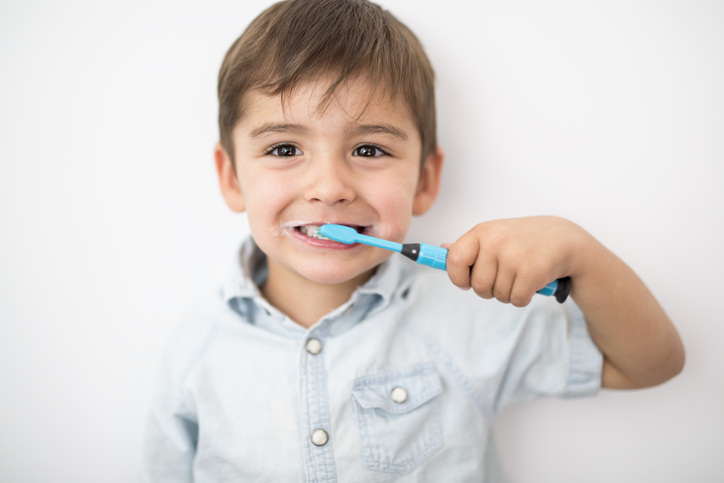Cavities in Children

Did you know that the CDC classifies tooth decay as one of the most common childhood diseases? All children are at risk for cavities, and the level of risk is impacted by many different factors. Why do some kids keep getting cavities while others remain cavity-free?
- First, it’s important to understand that heredity plays a part. Research by the National Institute of Health (NIH) suggests that a genetic component plays a role in tooth decay, all else being equal. In other words, just because someone you know never brushes his teeth and never has a cavity, that doesn’t mean someone else can get away with it. Understanding that part of the risk is genetic, though, should encourage you to promote healthy dental habits so that your children can rise above their genes.
- Ultimately, cavities are caused by bacteria. That’s why good oral hygiene is so important. Bacteria in the mouth feed on sugar and produce acid, which dissolves the minerals in a tooth’s enamel. As the tooth breaks down, cavities form.
- Regular dental care is crucial in preventing cavities. One in four children develops at least one cavity by the age of four. Because some children get cavities much earlier, it’s important to schedule a child’s first dental visit by the first birthday. The dentist will evaluate your child’s mouth and teeth, discuss measures to prevent tooth decay, and present treatment options if there are any cavities. In the interest of a thorough examination, the dentist may recommend dental x-rays, which provide a view that isn’t visible in a visual examination. Cavities must be treated promptly because infection in the mouth can lead to more serious health issues, as well as pain.
- You can be proactive about your child’s dental health. In addition to regular dental checkups, institute a brushing and flossing routine early in your child’s life. Brushing twice a day removes plaque, as does flossing. Start cleanings as soon as teeth erupt, with non-fluoride toothpaste before age two. As a parent, you should brush your children’s teeth until they turn six and can show you that they’re capable of doing it themselves. It’s especially important to brush teeth before bed and to use a fluoride toothpaste after age two.
- Diet matters. Limit the starchy and sugary foods your children eat, choosing instead to fill their diet with fruits, vegetables, and other nutrient-dense foods.
If you’re looking for a dentist for your children, look to Glenwood Premier Dental, where we believe that a healthy, confident smile is an important part of a happy and healthy lifestyle. Our staff of caring professionals offers a wide range of dental services, working to exceed our patients’ expectations, and provide the best possible service. We offer dental exams and teeth cleanings, teeth whitening, and more, using state of the art technology in a comfortable and friendly environment. If you’re looking for dental care in Hazlet, contact us through our website or call 732.264.4477.
